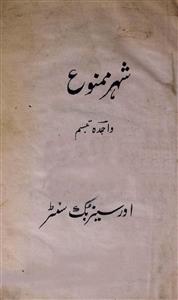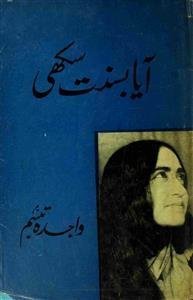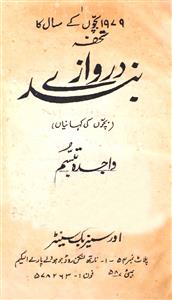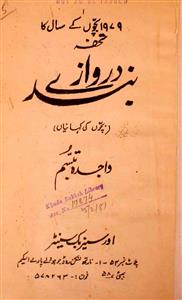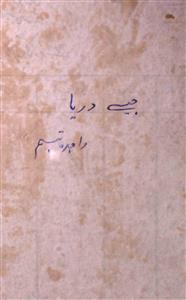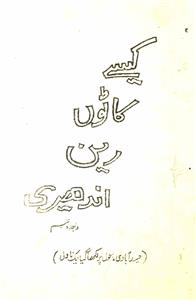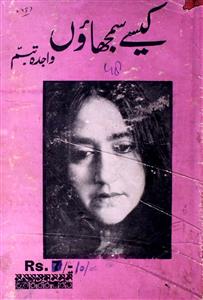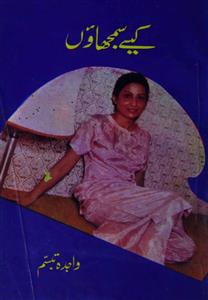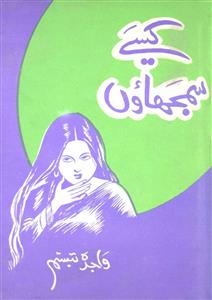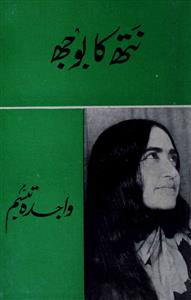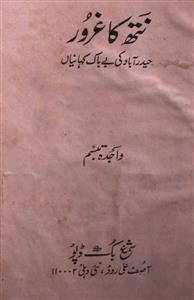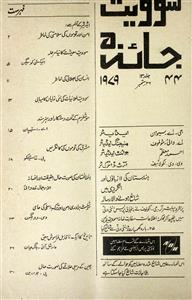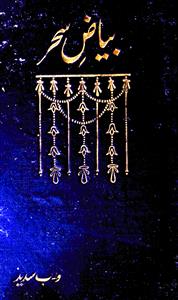 For any query/comment related to this ebook, please contact us at haidar.ali@rekhta.org
For any query/comment related to this ebook, please contact us at haidar.ali@rekhta.org
About The Book
واجدہ تبسم اردو کی بہترین ناول نگار اور افسانہ نگار ہیں۔نہایت ہی کم وقت میں انھوں نے اردو میں بحیثیت ناول نگار و افسانہ نگا راپنی پہچان بنائی۔ زیرنظر مجموعہ" شہر ممنوع" ان کا دوسرا افسانوی مجموعہ ہے ۔جس میں ان کی دلچسپ خود نوشت سوانح بعنوان "میری کہانی" شامل ہے۔ جس میں انھوں نے اپنے بچپن سے نوجوانی تک کے نامساعد حالات ،پڑھنے کا بے پناہ شوق ،نانی اماں کی نگرانی ،رشتہ داروں کی بے حسی اور آغاز کہانی کی داستاں دلچسپ رواں انداز میں پیش کی ہیں۔ یہ خود نوشت جسے اس مجموعہ کا پیش لفظ بھی کہا جا سکتا ہے ۔واجدہ تبسم کے افسانوی فن کو سمجھنے میں بے حد اہم ہے۔ان کے افسانوں میں حیدرآبادی ماحول اور تہذیب و تمد ن کے عناصر بدرجہ اتم موجود ہیں۔ان کی کہانیوں کا بنیادی محور حیدرآبادی زبان میں حیدرآباد دکن کا زوال پذیر معاشرہ ہے۔حالانکہ ان پر بے باکی اور فحش نگاری کے الزامات بھی لگائے گئے تھے۔لیکن ان کی کہانیاں بنیادی طور پر چہار دیواری کے مسائل ،بالخصوص عورتوں کے جنسی،نفسیاتی اور سماجی مسائل کی عکاس ہیں۔اس مجموعہ میں فاختہ ،آدم اور حوا،پاندان،زہر عشق،آگ کے پھول،شہر ممنوع،گلستان سے قبر تک،وغیرہ اٹھارہ افسانے شامل ہیں۔ جو مذکورہ موضوعات کا احاطہ کرتے ہیں۔ان کا اسلوب رواں اورمنفرد ہے۔انھوں نے اپنی کہانیوں میں دکنی زبان کے محاروے ،ضرب الامثال کو بڑی چابکدستی سے استعمال کیا ہے۔
About The Author
Wajeda Tabassum was born in 1935 in Amravati, Maharashtra, India. After earning her master's degree in Urdu from Osmania University, the family in 1947 moved to Hyderabad. Much of her writing is in a Hyderabad locale and the Dakkani dialect of Urdu, over which she has uncommon mastery. Quite a few of her stories are critiques of the decadent life associated with the old aristocracy of that region. In 1960 she married, against the wishes of her family, her cousin Ashfaq. The couple now lives in Mumbai. Wajeda Tabassum is a firm believer and feels that her writing is so powerful because a religious force inspires her. Wajeda Tabassum has published twenty-seven books. Utran is her best-known piece. When it was published in 1977, she was enounced because of attitudes the heroin displayed that were considered inappropriate of a Muslim woman, but the story was also widely appreciated. It has been translated into eight languages and filmed for television.
Some of her stories have been made into movies and Indian television serials. Her controversial 1975 story titled "Utran" (translated as 'Cast-Offs' or 'Hand-Me Downs') was made into a popular soap opera on Indian television in 1988. "Utran" was reprinted in English translation as part of an anthology of 20 short stories titled Such Devoted Sisters in 1994 and from there was made into a movie in 1996 under the title Kama Sutra: A Tale of Love, with a script by Mira Nair and Helena Kriel
Her books include Teh Khana, Kaise Samjhaoon, Phul Khilne Do, Utran, Zakhme-e-Dil Aur Mahak Aur Mahak and Zar, Zan, Zamin, which she had published in 1989.
 For any query/comment related to this ebook, please contact us at haidar.ali@rekhta.org
For any query/comment related to this ebook, please contact us at haidar.ali@rekhta.org
Write a Review
Jashn-e-Rekhta 10th Edition | 5-6-7 December Get Tickets Here
